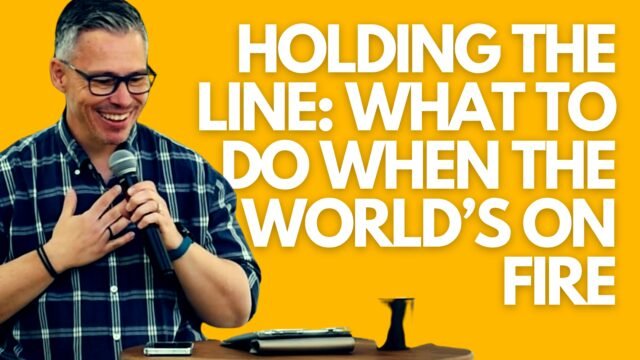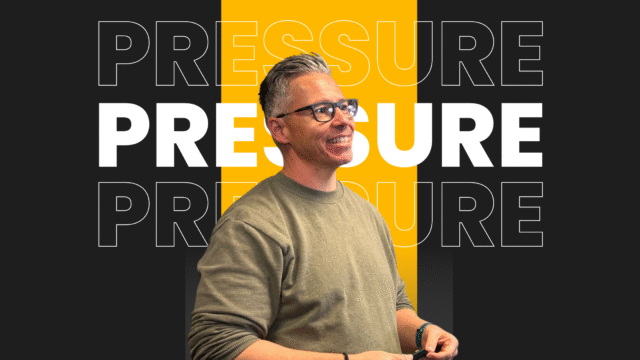A few years ago, I found myself over 40 kilograms heavier than I am now. Functioning, but not living. I couldn’t find clothes in my size. Getting in and out of my car was a chore. Any kind of physical exertion was difficult. And food had become a coping mechanism. My Dad died in his early 50s, and I didn’t want to go the same way. Something had to change. But I had tried to lose the weight so many times before, and had failed each and every time. My goal was just too big, and my “why” was unconvincing. I was not convinced that losing the weight was worth what it would cost me, or that I even could with my family background and genetics (or so I believed). I had to sit down, dig deep, and ask myself some hard questions. Maybe you’ve been there, Dear Reader. That now-or-never space where it’s time to figure out what you truly want.
Last week, we started speaking about goals and how, for many of us, we stay stuck in “The Waiting Place,” putting off our dreams or the things we say we want to do, because we fear failure or, indeed, have failed in the past. I shared the first three steps we all should take, and how by defining clear goals, knowing our why, and creating realistic plans, we can move beyond waiting. If you missed it, catch it here and then head back here for Part 2.
So, once you’ve decided WHAT it is you want to do, WHY you want to do it, and also been honest with yourself about your timeline and the size of your goal, it’s time to take some next steps. While the first three steps were foundational, the ones below require a bit of deeper heartwork and savvy. Ready? Let’s go…
Break your big goal into smaller mini-goals.
Like it or not, we are motivated by measurable progress and rewards – Pavlov may indeed have been on to something with the whole dog thing. The problem with one big goal is that it may take a while to get there. I still have not reached my weight goal, and it’s been a few years now. I have, however, managed to keep the weight off, which is a win. I also have a couple of books I’d like to write. That means 50,000 – 90,000 words that I have to write, get edited and submit to a publisher. If I have to wait til I am done to celebrate, I’ll be waiting a while, and I may lose my motivation as I do. The solution is to create meaningful mini-milestones and to celebrate often. I so believe in this principle that I bring it to work with me. My team celebrates often, and we recognise the wins. This keeps us in the game for the long haul. 50,000 words towards a book is a huge goal. 300 words 4 times a week is more manageable and gives you more wins as you track your goal. My Fitness watch does this. It breaks my day up into smaller goals and rewards me with a “ping” every time I achieve one. What if you could gamify your goals in the same way? Create milestones. For every 5 kilograms you lose, you get a book, or, gasp! a cookie. How can you break your goal up into smaller, meaningful milestones? I say meaningful, because simply celebrating every time you do anything towards your goal also does not work. You must have achieved something. Your rewards also need to make sense. What will motivate you towards your goal?
Find your scenius.
I first encountered this term reading Austin Kleon’s book “Show Your Work!” In a recent article on what a scenius is, he writes: “Scenius is a term coined by musician and producer Brian Eno to counter ‘The Lone Genius Myth,’ or the idea that innovation in art and culture comes from Great Men working in solitude. If you look back closely at history, many of the people who we think of as lone geniuses were actually part of “a whole scene of people who were supporting each other, looking at each other’s work, copying from each other, stealing ideas, and contributing ideas.” Have you found your scenius? Those who cheer you on as you race towards your goal. And those who inspire you with similar work they are doing. I am part of a writer’s group that meets once a month, and our ragtag group exists to encourage one another as we plug away at our writing goals. We are each in vastly different spaces in our lives, and our writing goals look very different, but we share our work (and our dreams) with each other and cheer each other on as we do. Every time I meet with my writers group, I feel inspired to write. If you’re in a group that leaves you negative and dejected every time you meet, find a new group. Perhaps you’ve found it difficult to find a group where you live. I also struggled for a long while, and then I found that some writers, some podcasts, and some courses became my scenius in absentia. I found others who felt as passionately about my dream or goal as I did, even more so, and allowed them to speak into my life, even if it was virtually. And then, of course, there are online groups you can find on meetup.com – I’m part of one that meets online once a week to say hi, and then write for an hour over Zoom. There are groups that meet in person, and groups that meet online for almost every communal hobby under the sun. It may sound weird, but sometimes weird is all you’ve got. Find your scenius.
Finally, and this may be the hardest one (remember I mentioned heart work).
Address the obstacles, the excuses and reasons that have kept you from your goal, because if you don’t, you may fail again.
There were habits, narratives and limitations that were causing me to fail, time and time again, in my goals. Some I had to fix, some I had to counter with the truth, and some I had to accept and find workarounds for. It took creativity, a little bit of therapy/counselling and also some grit to work through these. And in my case, my faith played a huge part in addressing the lies I had come to believe. I had to find healing for some of the untrue narratives my upbringing had taught me, and I had great friends praying for me through the stuckness I was experiencing.
Is there wrong thinking you need to address as you tackle your goal? I believed I would never be able to write as long as I had a day job. And then I went to a conference for writers, and you know what? ALL of them had a day job. They were lawyers, accountants, advertising executives, but they were also all writers. They just decided that their limitations were not going to keep them from what they wanted. Maybe you’ve never put yourself out there because your art (whatever that may be) is just never good enough. Perfection mindset, check. Maybe you have four kids. Reasonable excuse, check – BUT, what smaller step can you take towards your goal, keeping in mind that you have four kids? An author and speaker I love, Havilah Cunnington, once shared how she desperately wanted to get into studying Scripture more. But having four boys and keeping her household running made it seem impossible. Until the day she decided to leave her Bible open on the counter in her kitchen. And each time she’d walk past it, she would read one verse. And then repeat that verse to herself throughout the day, until she walked past again. She found a way to get around her limitations. Have no gym membership? Go walking. Have no time to write? What about getting up early, or committing to only 15 minutes a day over lunch? What excuses have you been making or using that are wrecking your goals? Are they legitimate? Can you let some of them go? Consider sitting with someone you trust, someone honest but kind, and sharing these habits, excuses or narratives with them, and allow them to speak some truth into your situation. These conversations can be some of the most life-giving moments as you head towards your goals.
Let’s land the plane.
Earlier this year, I discovered a quote that I have not been able to shake: “Vision without execution is hallucination.” Thanks, Thomas Edison, for the proverbial knife to my heart. But it’s stuck with me because I have lived this! I have hallucinated my way through so many missed opportunities, and I just don’t want to do that anymore. I want to dream. And I want those dreams that God has for me to become a reality. How about you, Dear Reader? Ready to see your dreams take shape, crawl, learn to walk, and eventually fly? I am, and I’ll be praying for you in the journey.
——————
If this helped you, please consider subscribing to my blog, share this post with someone you know and drop me a comment. I’d love to hear from you. And for those wanting to read a bit more about my weight loss journey, check out my two-parter here.
Discover more from Story Matters with Taiki Dimas
Subscribe to get the latest posts sent to your email.








